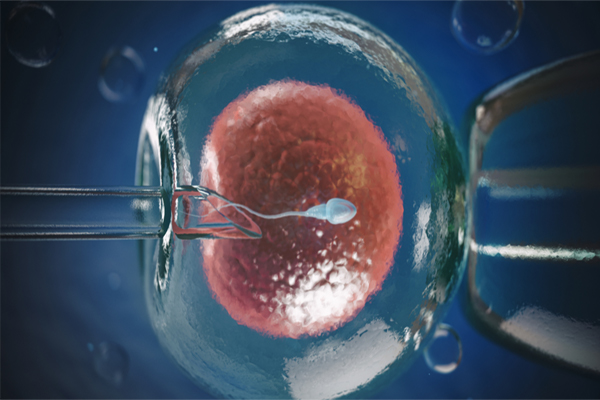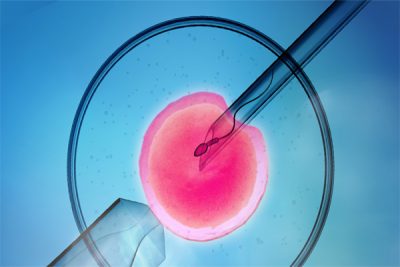ترجمه نوشته:

Infertility transplant in Iran; starting the path to childbearing with modern knowledge and confidence
- Infertility transplantation is one of the most advanced assisted reproductive techniques (ART) that allows couples facing severe infertility to have children. These treatments include the use of donated gametes (eggs or sperm), donated embryos, or surrogacy, and are performed in Iran under the supervision of fertility specialists, Sharia, and legal experts.
When is infertility transplantation recommended?
Doctors usually recommend this procedure when: Ovarian reserve is severely reduced or ovulation is absent, sperm is of insufficient quality or quantity, the mother’s uterus has been removed for congenital or surgical reasons, the risk of transmitting genetic diseases is high, multiple failed IVF attempts with the person’s own gametes.
Main methods of infertility treatment in Iran
First case: egg donation (Egg Donation):
Eggs are taken from a young, healthy woman, fertilized with her husband’s sperm, and placed in the uterus of the recipient mother.
Second case: Sperm donation Sperm Donation: Sperm is obtained from reputable banks and screened volunteers and combined with the partner’s egg.
Case Three: Embryo Donation Embryo Donation: The embryo from the donor couple is transferred to the recipient woman, suitable for when both couples are infertile.
Case 4: Surrogate uterus (Surrogacy):
The embryo of an infertile couple grows in the womb of a volunteer woman (surrogate womb), especially for women who do not have a uterus or have severe uterine problems.
Important scientific points in infertility treatment
Recent advances have shown that using younger gametes statistically increases the chances of pregnancy by fifty to sixty percent.
PGT-A (preimplantation genetic screening) can select healthy embryos without chromosomal abnormalities and reduce the risk of miscarriage.
Uterine surrogacy in Iran is only performed under special circumstances and after approval by the medical ethics committee and with official consent.
Requirements for infertility transplant
Age: Women receiving eggs or embryos should preferably be under fifty years of age.
General health: No uncontrolled chronic diseases such as diabetes, high blood pressure, or heart failure
Mental health: Psychological assessment before treatment, especially in surrogacy
Financial capacity and legal awareness: Why infertility treatment requires long-term decision-making
Hospitalization, recovery, and care
Embryo transfer is usually performed on an outpatient basis without the need for hospitalization. Relative rest for up to forty-eight hours and the use of progesterone and hormonal medications to aid implantation are required. A blood test (hCG) is usually performed twelve to fourteen days later to diagnose pregnancy. In the event of pregnancy, monthly follow-up and psychological counseling are recommended.
Advantages and disadvantages of infertility transplant
Advantages: Highest chance of having children for infertile couples, use of healthy and screened gametes, possibility of experiencing pregnancy even without having a normal egg or uterus, greater control over the fetus in terms of genetic health.
Disadvantages: Psychological and emotional burden in the treatment process for some families, legal and ethical challenges in countries without specific laws, dependence on specialized teams, and cost in Western countries (which is more affordable in Iran).
Infertility treatment using modern methods in Iran
Iran is one of the most advanced countries in the region in the field of infertility treatment. Shiraz, as one of the country’s treatment hubs, has advanced fertility clinics with services:
ICSI and IVF with donated gametes, PGT and genetic screening, surrogate uterus with full legal and medical support
Electronic remote treatment tracking system for foreign patients
Frequently Asked Questions for International Patients
Is infertility transplantation legal and permissible in Iran?
Yes, it is performed under the supervision of religious authorities, in accordance with the fatwa of jurists, and approved by the Ministry of Health.
Will the donor’s identity remain confidential? Yes, donor information is completely confidential and only the medical team has access to it.
Can I choose the sex of the fetus in Iran?
It is possible if PGT is used, of course with official permission.
How long should I stay in Iran?
Usually 2 to 3 weeks is enough for the complete treatment process, but the Arvan team will adjust the length of stay depending on the circumstances.
Comprehensive infertility transplant package in Shiraz with Arvan Health Group
Our services include: online consultation before arrival, receiving medical documents and official translations, communication with the best fertility centers in Shiraz, selection of a donor and surrogate uterus with a specialized team, accompanying Arabic and English translator, airport transfer and medical transportation, accommodation in 4 and 5 star hotels, follow-up after returning to the country.
A different experience with Arvan in Shiraz
Shiraz is the city of love, poetry, and healing. Next to Persepolis, lush gardens, and pleasant air, with tranquility, expertise, and Iranian hospitality, your healing journey will become an unforgettable memory.
Arvan Health Tourism Group is with you from the moment you arrive until you return; from coordinating treatment to enjoying the unique culture and nature of Fars. We make it possible for you not only to receive treatment, but also to give you “hope for a new life.”
General information
About infertility transplant
Anesthesia:
Brief anesthesia or sedation
Recovery period:
-
Duration of surgery:
-
Duration of hospitalization:
-
Return to normal life:
-
Cost:
-
Arvan treatment packages
Click to check Arvan packages

To book an appointment and receive a free consultation, contact us now.
Frequently Asked Questions About Infertility Transplantation

It usually takes about 2-4 weeks to prepare for IVF. The egg stimulation phase lasts 8-10 days, and the egg retrieval phase takes place 2 days after that.
Before the IVF procedure begins, you will receive a light anesthetic to help you stay calm during the procedure. Most patients do not experience much discomfort, but some people may experience bloating during the ovarian stimulation phase, and there may be some bleeding or mild muscle cramps after the egg retrieval.
The decline in egg quality that occurs with age may affect the success of this procedure. Therefore, older people need to put in more effort to produce and retrieve eggs. Maintaining a healthy weight, lifestyle, and physical fitness increase the success rate of IVF.
No. Because the donated eggs or sperm are frozen in the laboratory and stored properly, and the patient can use the donated eggs if needed.
The level of insurance coverage varies depending on the type of insurance and where you live. Currently, some health insurance plans cover many of the costs of infertility treatment.
If the eggs are not fertilized after retrieval, you will need donor eggs to achieve this. Your doctor will help you determine which method will result in fertilization.
Articles related to infertility treatment
✅ Complete travel guide to Qalat Village, Shiraz | A mountain tourism gem with a waterfall, church, and eco-lodge
-
Posted by
arwan.ad
- 0 comments
“Journey to the heart of Azeri culture; treatment, relaxation, and a unique experience with Arvan Health Tourism Group”
-
Posted by
arwan.ad
- 0 comments
Advantages and disadvantages of tummy tuck😱
-
Posted by
arwan.ad
- 0 comments





